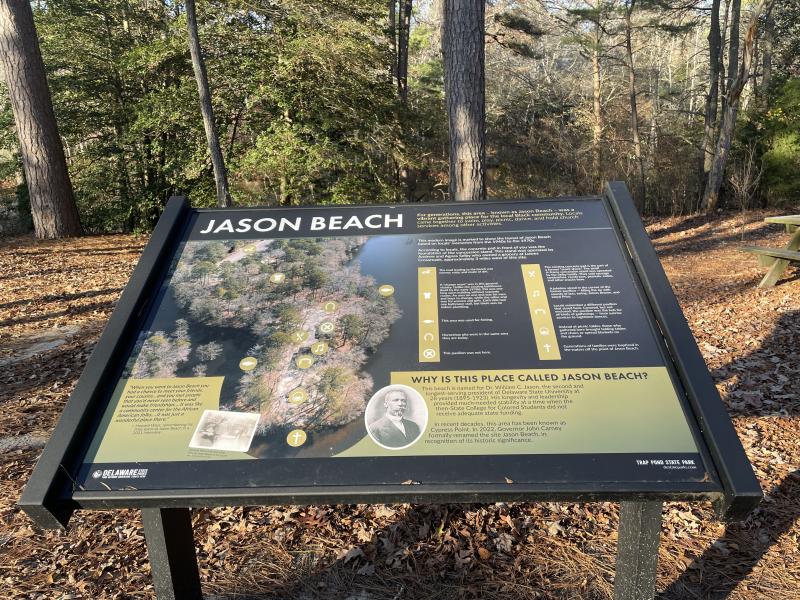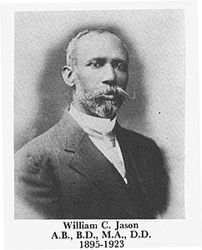The story of Jason Beach at Trap Pond
Most people in the Lewes area are well aware of the efforts to rename Lewes Beach 2 to Johnnie Walker Beach in honor of the prominent African American businessman who operated a restaurant/entertainment venue at the site.
It was not talked about, but Lewes had a beach for African Americans and a beach for whites during the Jim Crow era. The African American beach was a popular gathering spot for cookouts, parties and dances. It was an important part of the community's culture.
You may not be aware of another gathering spot for African Americans on the other side of Sussex County that was just as popular. Even though technically there was no segregation in the state parks in the 1950s and 1960s, Jason Beach at Cypress Point in Trap Pond State Park near Laurel was the park's African American beach, and Headquarters Beach was for whites. Jason Beach was a popular gathering location for African Americans from the 1930s into the early 1970s.
From time to time, questions were posed about the situation, but everyone seemed comfortable with the separate beaches. Unfortunately, while improvements took place at the park, no improvements were ever planned in the area of Jason Beach. Over the years, the facilities at Jason Beach deteriorated, and fewer and fewer people used it.
William Jason
The beach was named after Dr. William C. Jason, who served as second and longest-term president of the State College for Colored People (eventually renamed Delaware State University) in Dover for 27 years, 1895-1923.
He's the same education pioneer for which William C. Jason Comprehensive High School in Georgetown was named. The first high school for African Americans opened in 1950, and added seventh and eighth grades in 1953. When desegregation became law, it closed in 1967 and the building eventually became part of Delaware Technical Community College.
The incident
Segregation came to an ugly head at Trap Pond in July 1963. White children from Laurel were scheduled to have swimming lessons as part of a Red Cross program. Three buses of 60 African American children from Seaford arrived at the park for swimming lessons on the first day of sessions for that week. They were told that it was not their turn and they should leave.
However, they returned the following day and ran into Headquarters Beach instead of going to Jason Beach. That caused all of the white children's swimming lessons to be canceled for the week. To ease racial tensions, officials contemplated a shutdown of the park, which was not carried out.
A story in the State Register newspaper stated: “State Park Chairman Thomas W. Murray Jr. insisted he was following the rules laid out for the swimming classes. He commented, ‘Everybody has to go by the rules. If those Negro children had shown up when it was the Seaford area’s turn for the lessons, they would not have been turned away.” The Red Cross swimming instructor, J. Milton Moyer, stated that his organization did not discriminate against anyone on the matter of race. Following the cancellation, Moyer went to Jason Beach and offered to give lessons to ‘anybody from the Seaford area who wants to learn how to swim. If any Seaford white people want the lessons with Negro children, they certainly may.’”
It's unclear who made the decision to cancel lessons, but what is clear is that the person in charge of the Laurel children did not want to mix with the African American children. As cruel as that seems, it was not unusual for the times.
The beach is renamed
The only reminder of the history of Jason Beach is a concrete pad covered in leaves and dirt where the snack shack was located. During its heyday, the area had horseshoe pits, a pavilion with a juke box, a bathhouse and restrooms (with no indoor plumbing) and an area for fishing.
Generations of African Americans in Sussex County were baptized at Jason Beach, which offers the best view of Trap Pond.
The passage of the Civil Rights Act of 1964 effectively ended having two separate beaches at Trap Pond. The area was referred to as Jason Beach at least through 1966, when it was changed to Cypress Point.
It seems we are always playing catch-up when it comes to recognizing African American history in Sussex County. This past June, Gov. John Carney and DNREC Secretary Shawn Garvin unveiled a historic marker returning the name of the area to Jason Beach.
The Division of Parks staff compiled a history of the area and conducted interviews with people who remembered Jason Beach. It's on their website at destateparks.com/CommunityHistories/JasonBeach.
About Trap Pond
Trap Pond, opened as Delaware's first state park in 1951, has its own fascinating history. The land was acquired by the federal government in the 1930s under the New Deal, and a Civilian Conservation Corps work camp was set up to develop the area into parkland from 1936-37. It became a federal recreation area until the state took over management to create Trap Pond State Park.

























































